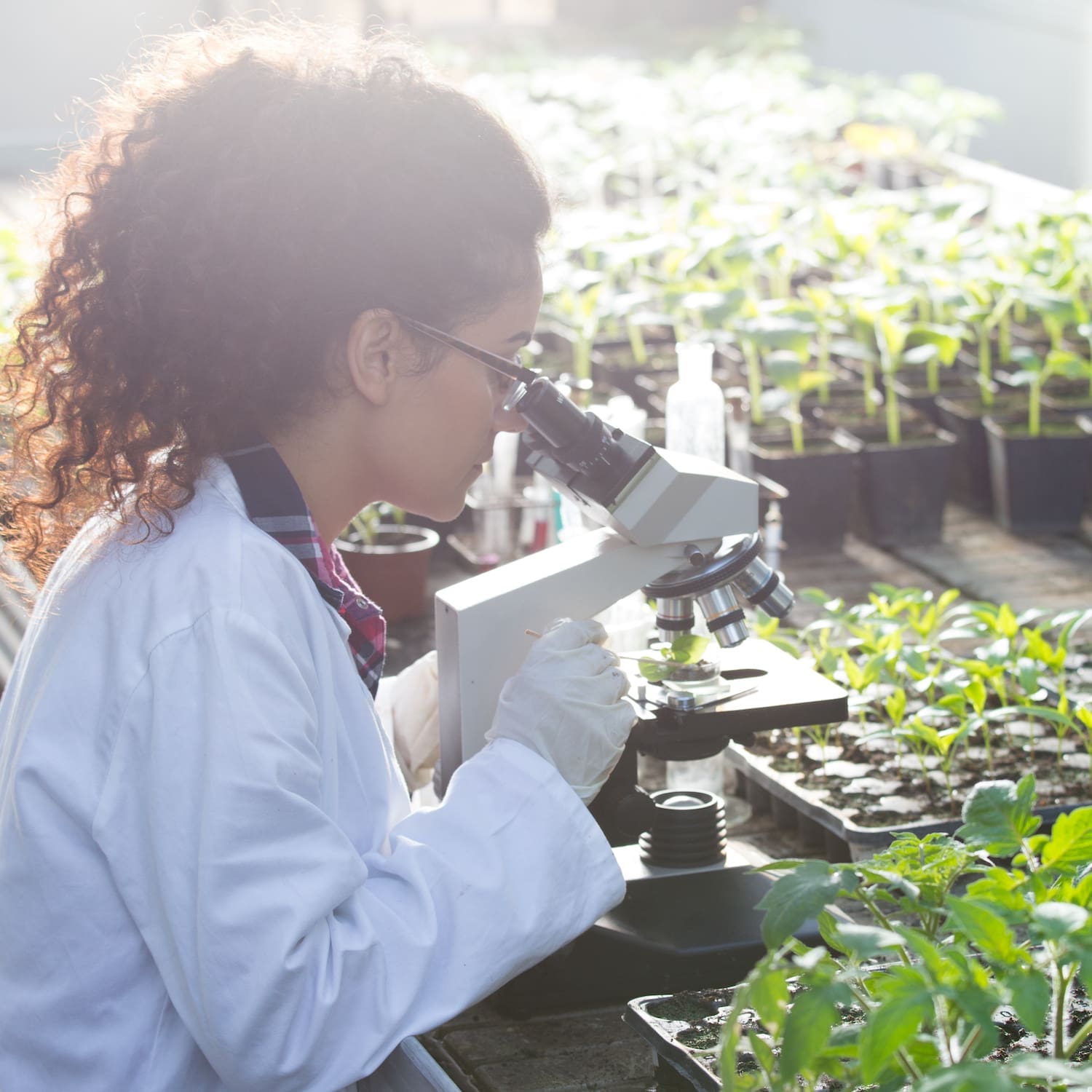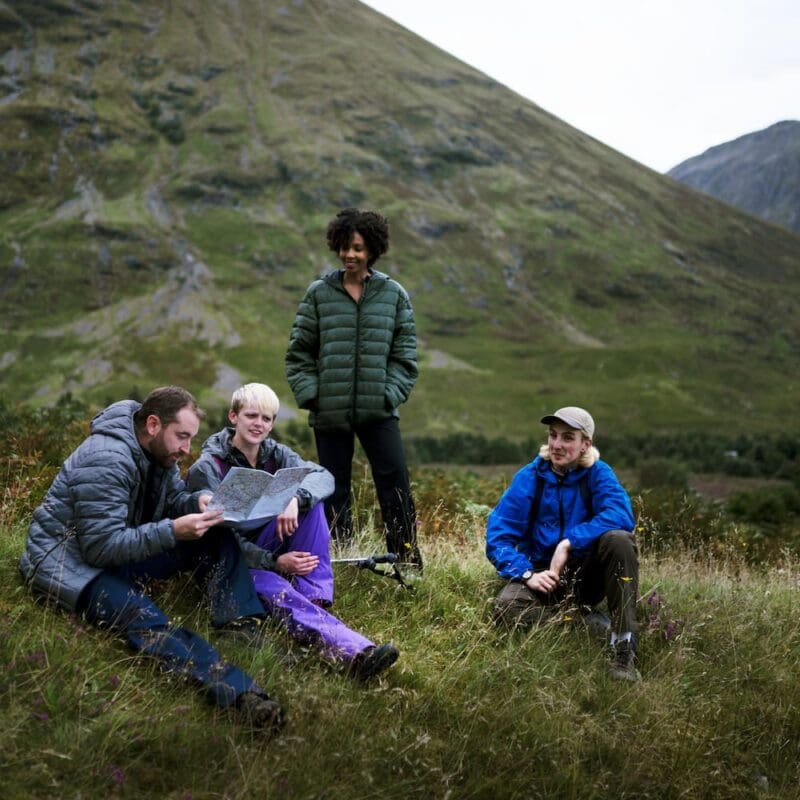
Awarding body:
Edexcel
Study time:
12 months
Study method:
Online
£419.00
Choose your enrolment options
About this GCSE Biology Course
The GCSE Biology course that we offer is the international version, also known as the IGCSE, as this course is more suited to distance learning and can be taken by people in any country. Students studying the Biology GCSE will learn about the variety found in living organisms as well as the structures and functions of living creatures. The course covers ecology, the environment, reproduction and the structure of living organism to give a broad knowledge of biological systems. Once this course is completed, many students look to move on to further study such as A Level Biology and continue on to further their knowledge and understanding of this topic.
| Study Time: | 120 hours |
| Enrolment length: | 12 months |
| Course Format: | Online |
| Entry Requirements: | None Specific |
To get the full Edexcel GCSE, students must enter themselves as a private candidate for the exam. You can learn all about this process by visiting our GCSE exam guide page.
Qualification
The Edexcel GCSE Biology qualification is available both in the UK and internationally and is seen as a global standard for knowledge in business. The course is accredited with Edexcel, an industry leader with decades of expertise in academic qualifications. For more information regarding Edexcel, click on the Edexcel tab further up this page.
Course Content
Included in this GCSE Biology course are the following units:
Topic 1 – The nature and variety of living organisms
In the first topic of this course we will look at the nature and variety of living organisms. This will include how living organisms respire, take in nutrients, dispose of waste, reproduce and develop. A number of different characteristics of plants, animals, fungi and protoctists will be explained thoroughly.
Topic 2 – Cells and biological structures
Next we will start to look at cells and their structures. Cells are the basic building blocks of all living things and come in a number of different shapes and sizes.
The most common cell types will be introduced as well as how substances move in and out of the cell. Chemicals that are present in cells will also be explained as well as the differences between plant and animal cells.
Topic 3 – Nutrition
In this topic we will move on to look at nutrition of both plants and humans. All living things require good nutrition so that their cells have the correct chemicals to do their job. This topic will explore what photosynthesis is and what vitamins and minerals humans need for their organs to operate.
Topic 4 – Respiration and gas exchange
This topic will focus on respiration and gas exchange in both plants and animals and what this process involves. The structure and function of the lungs will be explored as well as how smoking can impact lung function.
Topic 5 – Transport
The transportation of substances in both plants and humans will be covered in this topic. It is vital for any living organism to be able to move substances from one area of the body to another to ensure that chemicals are in the locations they are needed.
This topic will focus on osmosis in plants and the role of blood in the human body. The workings of the heart and composition of the blood will be explained in full so that you fully understand how the blood transports substances around your body.
Topic 6 – Co-ordination and response
Next we will move on to look at how living organisms respond to various changes in their environment. The ability to notice a change and then respond to this change is used as a way for organisms to ensure they are safe.
Various different stimuli (something that triggers a change) will be explored and we will look at how organisms respond to these.
Topic 7 – Reproduction and inheritance
In this topic we will study the principles of reproduction in flowering plants and humans. We will understand the differences between asexual and sexual reproduction and describe the processes of fertilisation and pollination. The roles of hormones including oestrogen, progesterone, FSH and LH in the human menstrual cycle will be explained along with the ways in which the male and female reproductive systems are adapted to their functions.
The structures of DNA and RNA will be described, along with the stages of protein synthesis. The process of inheritance will be explored including the use of genetic cross diagrams to predict the phenotypic outcomes of fertilisation along with the causes, incidence and implications of genetic mutations.
Topic 8 – Ecology and environment
Ecology is the study of how living things impact each other and how various environments impact organisms. In this topic we will look at environments in detail as well as food chains and the way in which different plants and animals impact the life of others.
Topic 9 – Use of biological resources
In this topic we will study the methods used in food production including the use of glasshouses, polythene tunnels and fertilisers in growing crop plants. We will also look at the role of microorganisms such as yeast and bacteria in the production of food, for example bread and yoghurt, and the methods used to farm large numbers of fish.
The use of selective breeding to develop plants and animals with desired characteristics and the role of genetic modification in the manufacture of insulin and improvement in food production, as well as the process of cloning will be discussed along with their advantages and disadvantages.

Online study and instant enrolment
All of our students are given access to our Online Campus through their own personal login and password. As soon as you complete your enrolment, you would have immediate access to your account which allows you to make a start working through the lessons. Tackle your assignments as your own pace and contact your tutor to access any help and support you need. The course itself is set out in a very simple layout, making it easy to work through the topics and complete your assessments.
Our Online Campus includes:
- Instant enrolment – access everything on your course from the moment you enrol.
- Personal account logins – login any time, 24/7.
- Full support throughout – message your tutor, use our online chat or give us a call.
- Online assignment submissions – upload work online from the comfort of home.
- Self-led learning – study at your own pace so you can pass much faster.
- Safe e-portfolio system – store all of your work in your account.
- Progression tracking – easily see what assignments you have left to complete.
- Details help centre – get instructions and guidance every step of the way.
- Unlimited attempts – submit as many attempts at your assignments as you need.
Unlimited assessment submissions
All of the assessments for this course are completed through our Online Campus. You can attempt each one as many times as needed to ensure you pass. After every attempt, your tutor will provide detailed feedback and tips on how you can improve going forward. Quickly see your progress during your studies by checking your progress bar and seeing the remaining assessments you need to complete.
On this IGCSE Biology course you are required to enter yourself for the Edexcel examinations. This means that you will need to contact an Edexcel centre local to you in order to sit your exam and pay any fees that are required for this. Exam fees can vary between centres but are much cheaper when organised early so we advise to book your exams long before the actual examination date.
Get full tutor support
Throughout your enrolment with the Online Learning College, you can access support at any time you need. All students are assigned a personal tutor who will mark all of your work and provide detailed feedback after every submission. Your tutor will be an industry expert with a full knowledge of the course content and will be able to help you at any point along your learning journey. One of the best tools at your disposal is your tutor – you can ask as many questions of them as you wish to and they will be happy to help at any time.
We also have a brilliant support team on hand and available through email, online chat and over the phone. This team is there to help with any questions which are more generic, such as providing support in submitting work through your account or getting your certificate when you have completed your course. We pride ourselves on ensuring the support you receive is the best in the business – help and guidance is fast and detailed every time you contact a member of the team.
Assessments
On this GCSE Biology course you are required to enter yourself for the Edexcel examinations. This means that you will need to contact an Edexcel centre local to you in order to sit your exam and pay any fees that are required for this. Exam fees can vary between centres but are much cheaper when organised early so we advise to book your exams long before the actual examination date.
Enrolment Length
All of our courses are allocated plenty of time for students to complete their studies and all materials are self-led so that you can complete the course at your own pace, but you have access to the course on the Campus for 12 months from your enrollment date. Should you require additional time on one of our courses you can extend your enrolment by 30 days for an additional fee of £60. As well as this we operate a 14 day money back guarantee on every one of our qualifications- that’s how confident we are of how you will love studying with us!

Gain a full Edexcel GCSE
This course prepares learners to sit for their Edexcel GCSE examination. We offer full tuition and materials to get you ready for your exams and completing a GCSE in this way results in exactly the same qualification as through a traditional school.
Edexcel GCSE
Ofqual Regulated
Same qualification as in traditional schools
Frequently Asked Questions
Learn more about this course and others that we offer. If you still have any questions, simply contact our course advisors on 0800 772 0887 or email info@ol-college.com.
What is included in this IGCSE Biology course?
The GCSE courses that we offer are to prepare you for your exam. We provide the revision for the GCSE’s, there are assignments at the end of each unit for you to complete and submit to your tutor, this way you will be marked on what you have learnt in the unit and see if there is anything that you need to focus a little more on. Once you have worked your way through all of the units then you will also have a mock exam. When you have completed all of the revision with us then all being well you should be ready to book in for and sit your GCSE exam. Please note, the cost of the exam isn’t included in the cost of the course and completing the GCSE course with us will not give you a GCSE qualification.
Do I have to sit an exam?
You do, the IGCSE Biology course that we offer is to prepare you for the exam, you will then need to book in at a centre that is convenient for you to sit your exam as a private candidate.
Am I assigned a tutor for this IGCSE Biology course?
You are! Once you have enrolled then you will have an assigned tutor, this person is the one who will be marking your work, providing feedback, and passing your work. If you need to speak to your tutor at any time throughout your enrollment then you can message them via the campus and they will reply within 24 hours of out working hours.
Can I speak to someone before I enrol?
Of course! We have course advisors and a customer service team in the office Monday to Friday 9am until 5pm who will be happy to help and answer any questions that you may have. You can call us on 0800 772 0887, email us at info@ol-college.com or we even have a live chat facility.
How long do I have to study?
The enrolment term is 12 months, however, as long as you complete all of the written assignments and practical tasks (if applicable) then you can complete the course sooner if you wish. If you need any additional time after the 12 months then you can also extend which costs £60 per month and you can do this as many times as needed.
What are the payment options?
There are various payment options for this IGCSE Biology course. The first option will be for you to purchase the course and pay in full upon enrolment. The second option is the pay monthly option, this is completely interest free and splits the cost into 12 monthly payments. Finally, we can send an invoice with 30 days payment terms if your employer will be funding the cost of the course – if you would like this option, then please ask your employer to get in contact with us so we can provide them with the details we will need.
Do you offer any funding for the course?
Unfortunately we don’t offer any free or funded courses but you can split the cost into 12 monthly payments which is completely interest free.
Do I need to buy anything else for this IGCSE Biology course?
Everything that you will need will be provided to you when you enrol, you will also need to complete some of your own research too. Buying text books and other resources can become costly so we don’t ask you to or recommend buying anything, there is lots of free and very useful information online!
How do I see my course material/resources?
Everything that you will need for your course will be accessible on our online campus. You can select the online and paper versions of most of our courses too, if you select this option then there will be an additional £35 cost, this covers the cost of us printing out a full course pack in a ring binder folder and sending out via Royal Mail 1st Class, Tracked & Signed delivery.
How do I log in and access my course?
Once you have enrolled then you have access to the campus right away to get started on your course. You can log in by going to our website and clicking ‘Log in’ at the top right hand side of the page. Your username is the email address that you used to enrol and your password is the one you created at the checkout when enrolling.
When will I receive my certificate?
Once you have completed and passed all units and your course is paid in full (either paid in full upon enrolment or if paying monthly then the remaining balance paid or monthly payments complete), then we can request your certificate from the Awarding Body. Certificate’s take 6-12 weeks to arrive with us and once we receive it we will then contact you to confirm the address to post it to. Certificate’s are sent via Royal Mail 1st Class, Tracked & Signed delivery.
What happens if I fail an assignment?
If you fail an assignment, then please do not worry! You can resubmit your assignment as many times as needed until you pass. Each time you submit an assignment then your tutor will mark it and provide feedback, you can then make the amendments and resubmit and have the new version marked again.
How long does it take to mark my work?
We have a marking timescale of 5 working days from the submission, your tutor will mark your work and provide feedback with if you need to make any amendments to enable you to pass. Please note, we do ask that learners don’t upload more than one submission at a time as this will delay the marking not just for yourself but for other learners too.
Do I have to attend or view any live/virtual lessons?
You don’t, everything is in written, text, image and diagram format. You will have access to the campus 24/7 to be able to log in and complete your work. You won’t need to view any videos or audio lessons.
What device can I/shall I use?
As you will have assignments to write and type up for submission then we would recommend using a computer or laptop for this as you will need to use a software such as Microsoft Word or Google Docs to type these. You may also be able to use an iPad/tablet for this. You can use a smartphone if you wish but you may find it difficult and it would probably be easier on a larger screen/device.
How do I complete my assignments?
Once you have enrolled and accessed the campus you will see your assignment tasks and criteria of what needs to be covered in each assignment.
Our latest reviews
Fully supported by an online tutor
Our courses come with full tuition from an expert tutor. Your tutor can be contacted through our messaging system, and the same person will provide feedback on your assignments. We also have a dedicated admin team on hand to help over the phone, through live chat, and by email.
1 working day for replies to messages
5 working days for feedback on assignment
Our turnaround times are the best in the industry!

Start today with immediate enrolment
Expert support at all times
Our speedy support promise
When you study with us, we ensure a speedy service. That's why our current timeframes for marking and support are the best in the business.







